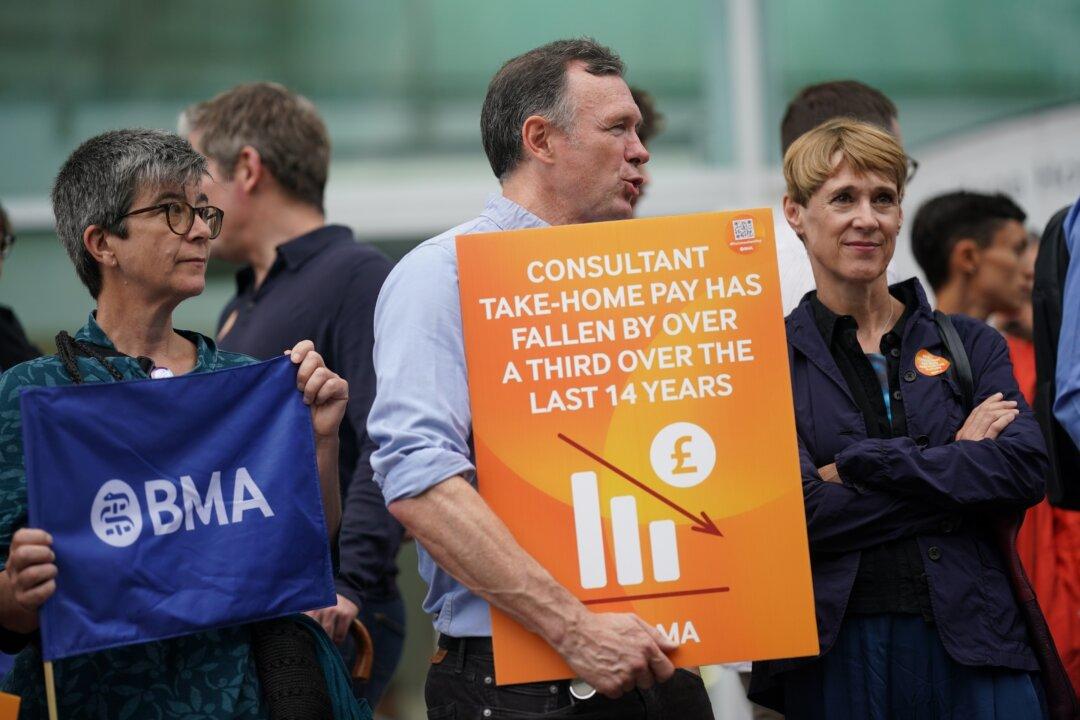The impasse between the government and NHS doctors continues as consultants began their second two-day strikes over pay on Thursday morning.
Meanwhile the British Medical Association (BMA) union further ramped up pressure on ministers by announcing three more days of action that targets the annual Conservative Party Conference.It means senior doctors in England will have walked out for two days every month between July and September and for three more days between October 2 and October 4 unless an agreement is reached.





